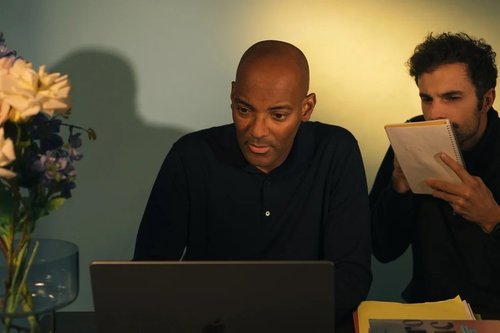The law of triviality: why are simple decisions so hard to make?
May 15, 2020
5 mins


Journaliste indépendante
For many of us, the Covid-19 crisis has completely changed our priorities. Whether you’re working full-time or reduced hours, you’ve probably noticed that you have a lot more time on your hands compared with pre-lockdown life. Gone are the days of frittering away the hours, often in meetings, or hemming and hawing over trivial decisions. What color slides should I use for my PowerPoint presentation? Should I wear a blue or white shirt for that client meeting? What sounds better, “Regards” or “Best regards”? If this sounds only too familiar, then the “law of triviality” will probably strike a chord with you.
Formulated by Cyril Northcote Parkinson, a British naval historian, and author, the concept is quite simple: we tend to spend more time on trivial issues and overlook the task at hand. Why do we do this? And how can we avoid wasting time pondering the finer details of things that aren’t ultimately important? In this article, we explain what the law of triviality is all about.
Parkinson’s law
In 1955, Parkinson came up with a theory drawn from his time spent working for the British civil service: “Parkinson’s law: work expands to fill the time available for its completion.” Originally a light-hearted jab at administrative absurdities, the law means that if an individual is given one week to complete a task, it will take the week to get it done. However, if that person is given two weeks to accomplish the same task, it will tend to take them the full two weeks.
The Economist first published the law in a satirical essay by Parkinson and it has since been studied extensively, especially in relation to management techniques. To ensure a task is completed effectively, managers must first set a deadline and then build the process back from that point. Thus it becomes a lot easier to perform boring or daunting tasks when you only have a set amount of time to complete them. In the same way, we need to schedule our most important tasks for first thing in the morning and divide them into steps if they are too time-consuming. Parkinson then came up with corollaries based on this theory, including the law of triviality.
Bike sheds and the law of triviality
The law of triviality naturally follows on from Parkinson’s law. The trivial issues end up getting more time and attention than the important ones because we spend longer on them. To illustrate his point, Parkinson imagined a fictional committee with two decisions to make: the first to approve the plans for a nuclear power plant and the second to choose materials for the staff bike shed at the facility. In this scenario, the committee settles the issue of the nuclear power plant in a matter of minutes, but the bike shed issue becomes a debate. It lasts over an hour, requires further information, and consequently gets postponed until the next meeting. So, why do we give so much time to topics that should otherwise be easily resolved?
The answer is simple: it’s easier to stand out from the crowd with a trivial, less complex topic. When making group decisions, everyone is naturally eager to demonstrate their added value. As a result, a greater number of people will jostle to express a point of view on more accessible subjects. Everybody attending Parkinson’s imaginary meeting has something to say about the bike shed because it’s a familiar, easy topic. The atomic reactor, on the other hand, requires specialist knowledge: non-experts risk public humiliation if they speak up. That’s why the small stuff is more likely to fire up a crowd while heavy topics that require specific knowledge get left on the back burner.
Meetingitis
The law of triviality explains how chronic meetingitis has taken over office politics. In 2018, Belgian tech company Barco collaborated with Circle Research to conduct a survey about the relevance of meetings. Among almost 3,000 white-collar workers interviewed in eight countries, only 44% said that the time they spent in meetings was useful. What’s more, the respondents reported that 26% of the meeting time was devoted to discussing topics unrelated to set objectives or making small talk. The survey concluded that an efficient meeting should last 21 minutes, whereas the average length is 48 minutes.
A fear of getting it wrong
The law of triviality is not confined to business decisions alone; it is also present on a personal level. When it comes to making a seemingly trivial decision, we often rely on our best judgment, which is inevitably subjective. For example, when organizing a team meeting for the first time, most of us choose the best time to hold it based on personal preferences. Objectively speaking, however, there is no perfect time to hold a meeting. Apart from scheduling it for Friday at 7 PM, an organized, well-prepared meeting can just as easily be held on Monday at 11 AM or Tuesday at 4 PM. Yet many people will spend hours obsessing over this question. Since the “best time” has no basis in objective reality, people can only rely on their own best judgment and waste time worrying about making the wrong decision.
According to Isabelle Falardeau, a psychologist and career counselor who has written several books on indecision, this fear of displeasing others or failing stems from low self-confidence. It causes an almost phobic fear of getting things wrong, even when no right or wrong answer exists. It can also be linked to the overabundance of choice that surrounds us, which can make us feel paralyzed even when faced with the most trivial decisions.
One effective strategy to combat this feeling of paralysis is to ask others for their opinions. However, this feeds into the law of triviality: the issue is familiar and simple, which leads to an outpouring of often contradictory opinions. In the end, this wastes precious time and often leaves the person who asked for advice feeling even more undecided.
Don’t sweat the small stuff
Get organized
A good routine is one way to stop yourself from wasting time on the small stuff. Plan your day by identifying the most pressing tasks and set a time limit for completing them. This way, you accomplish what matters most and can confine trivial issues to any remaining time. This strategy also applies to meetings. Create a roadmap and stick to it: start off with the most important points and eliminate anything unnecessary. Ultimately, the best way to avoid becoming overwhelmed by opinions on a trivial topic is to keep it to yourself.
Believe in your choices, no matter how small
As Ed Batista, a professor at Stanford Graduate School of Business points out in a Harvard Business Review article, there is no right or wrong answer when it comes to decision-making. “Merely selecting the ‘best’ option doesn’t guarantee that things will turn out well in the long run, just as making a sub-optimal choice doesn’t doom us to failure or unhappiness. It’s what happens next (and in the days, months and years that follow) that ultimately determines whether a given decision was ‘right’,” according to Professor Batista.
The next time you feel you’re wasting time on the small stuff, ask yourself if the consequences of your decision will really be that earth-shattering. Will the choice you’re about to make still matter in a few years? Will it result in something irreversible? Are there any major issues underpinning this decision? If you answer no, then it’s time to move on. Batista believes that it’s better to focus on the work to be done once the decision has been made. That way, you have the power to ensure your choice ends up the right one. Take the example of scheduling a meeting: it’s better to make a quick decision than subject a trivial issue to intense scrutiny. This leaves you with ample time to prepare the meeting for success, regardless of the schedule you choose.
If the small stuff is taking up too much of your time, you might be giving it too much importance. Life’s too short, as the saying goes. Put things into perspective, set deadlines, and believe in yourself. The rest will flow naturally.
Translated by Andrea Shwam
Photo: Welcome to the Jungle
Follow Welcome to the Jungle on Facebook, LinkedIn, and Instagram, and subscribe to our newsletter to get our latest articles every day!

More inspiration: Productivity & tools

Goal setting: How to bounce back when you feel like a failure
The big F word ... Failure. We all face it, but here��’s how to make it your secret weapon for success.
Dec 18, 2024

Productivity boost: Why mental health outshines long hours
Long hours don’t equal better work. Discover how mental health support can unlock productivity and time efficiency in the workplace.
Nov 28, 2024

10 fun ways people are using AI at work
While many use AI for basic tasks like grammar checks or voice assistants, others are finding innovative ways to spice up their work days.
Nov 05, 2024

12 Slack habits that drive us crazy
Slack is a top messaging platform, but coworkers can misuse it. Over-tagging and endless messages can make it frustrating ...
Oct 16, 2024

10 CareerTok creators you should be following
Looking for career advice? CareerTok has quick tips from real experts on interviews and job offers.
Sep 25, 2024
The newsletter that does the job
Want to keep up with the latest articles? Twice a week you can receive stories, jobs, and tips in your inbox.

Looking for your next job?
Over 200,000 people have found a job with Welcome to the Jungle.
Explore jobs